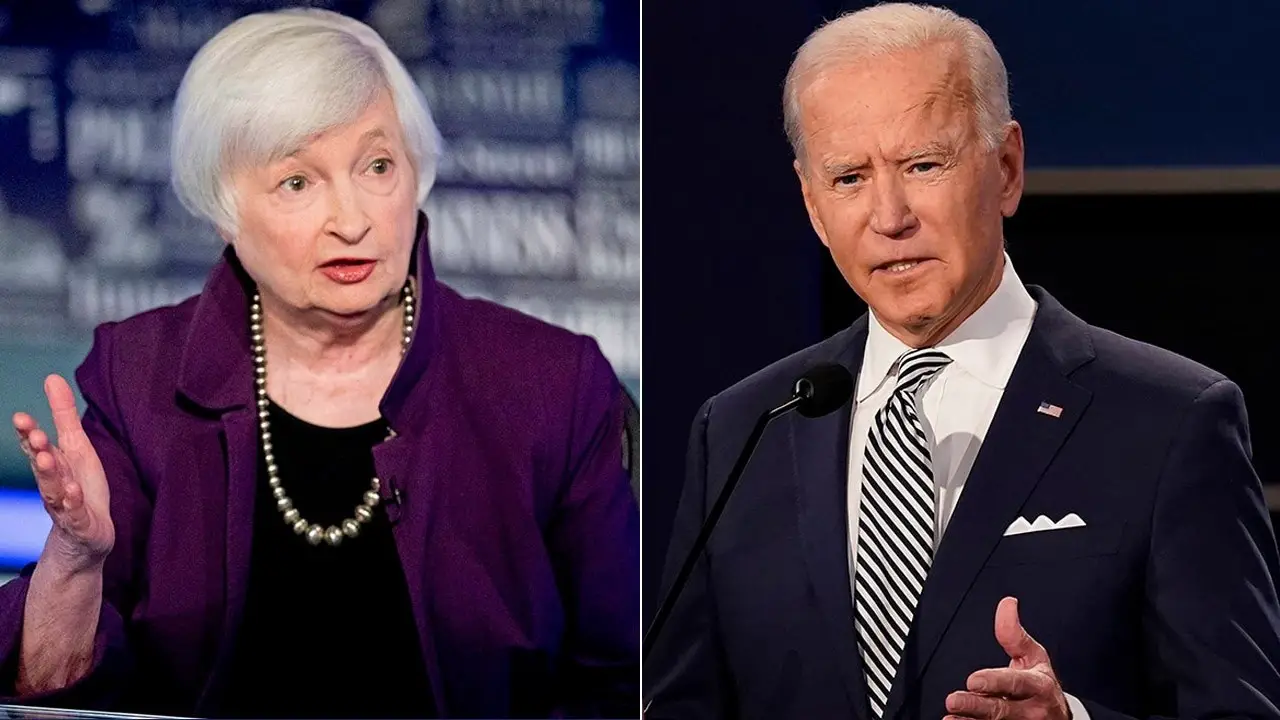As noted previously, the Biden administration fully supports a plan proposed by Treasury Secretary Janet Yellen to keep tabs on certain transactions in your personal bank account. Not that you’re sus[ected of doing anything wrong, of course, but the data would be part of “routine collection” according to Yellen, and help the IRS fill gaps in the federal budget by looking for signs that you or someone you transacted with isn’t paying your full amount of taxes.
Those federal budget gaps, which grow larger by the day, would be filled in with an estimated $7 trillion dollars of tax money that Uncle Sam thinks it’s being cheated out of and the Biden administration aims to put a stop to it.
On Tuesday, Treasury Secretary Yellen offered a full-throated defense of the plan and says it’s perfectly within reason to give the federal government any and all information it desires being held confidentially in your personal bank account:
‘Collection of information is routine,’ Yellen assured when asked by CNBC’s Squawk Box co-host Andrew Ross Sorkin about the new information collection that some Americans claim is an invasion of privacy.
Yellen insisted that the collection will help fill the tax gap.
‘There’s an enormous tax gap in the U.S. estimated at $7 trillion over the next 10 years in terms of a shortfall of tax collections to what we believe are owed,’ she said. ‘And that’s not coming from people failing to report wage income or dividend income where there’s good information. It comes from places where the information on income is opaque and can be hidden.’
She added: ‘It’s a simple way for the IRS to get a sense where that might be – it’s just a few pieces of information about people’s bank accounts.’
Up until this point, there has never been anything “routine” about snooping into the personal finances of hundreds of millions of American households. Yes, people file taxes, which basically gives the IRS a thorough view of your financial life on the income side, but how you spend money is not part of the equation.
You must disclose income since your employer must also disclose your income. You do not, however, have to disclose how much money you spend at Target every month, because sales tax aside, which is a local and state matter, that information is between you and Target, not the federal government. Furthermore, why would the government want such information in a blanket fashion?
Yellen makes it sounds like it’s no big deal, but it’s a big enough deal that banks and many state officials are sounding the alarm in opposition:
Banks, credit unions and other financial companies that would be required to report bank account inflows and outflows to the IRS under the plan say the idea is an overreach of the IRS and would affect a wide swath of taxpayers. Several small banks and credit unions have been urging their customers to contact their members of Congress to oppose the idea.
“While we typically do not raise issues occurring in Washington with our customers, Congress is considering requiring financial institutions to report detailed information on customer bank accounts to the IRS,” Wisconsin-based First Citizens State Bank said in a Facebook post.
Banks have a bad reputation and, in most cases, it’s rightly deserved for nailing customers with high monthly fees and unforgiving overdraft policies, among other indiscretions. Ever heard of the 2008 housing market crash? Big banks don’t get much sympathy from anyone. However, that does not mean consumers want banks to roll over and offer up personal account details to the federal government when no crime has been suspected.
In this case, as is usually the norm, smaller entities will fight harder since local and regional banks will get hit with the burden of this regulation and not have the same resources as the megabanks to comply with it. In other words, the large banks can absorb the burden and customer loss, the small to medium banks often cannot, so they fold leaving customers adrift.
The details of Yellen’s proposal have wide-reaching consequences and much of it deals with the digital economy and likely cryptocurrency:
More simply, this means that if total funds flowing in and out of a credit or debit account equal at least $600, banks have to report those figures to the IRS. This includes paychecks or money transferred from apps like PayPal.
Apps like PayPal, Venmo, and Zelle are convenient ways to transfer money. Under the Biden plan to monitor your bank account, all of these transactions could be open to scrutiny for tax purposes. If you accept an incoming Venmo payment for $600, the IRS would like to know where it came from and whether you intend to claim it on your taxes, for example.
The consequences would be far-reaching and, hopefully, banks and consumers can defeat this monumental overreach of federal power and keep the Biden administration out of our bank accounts.
